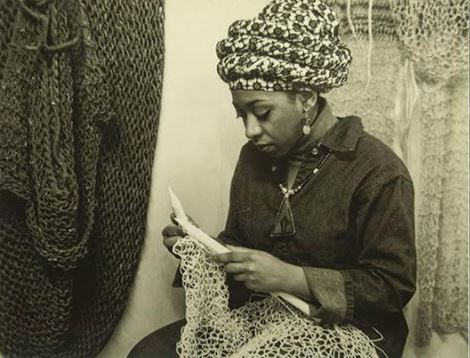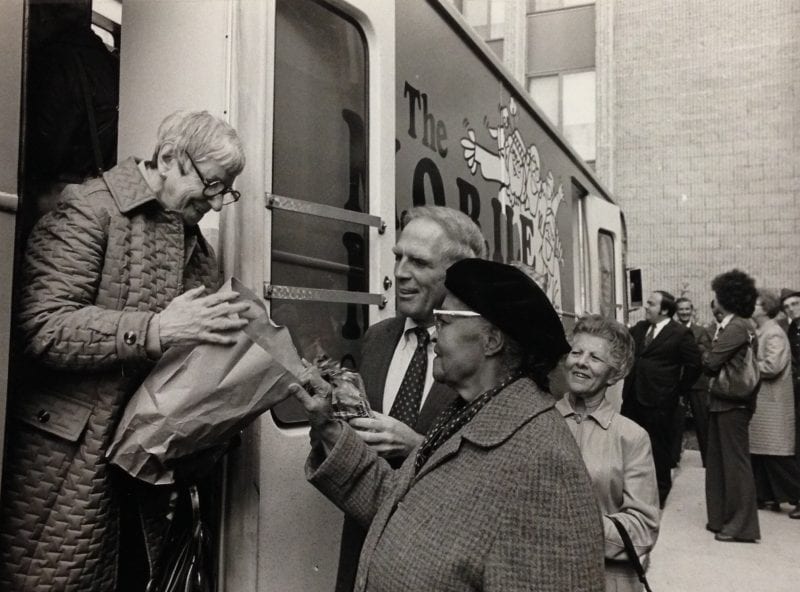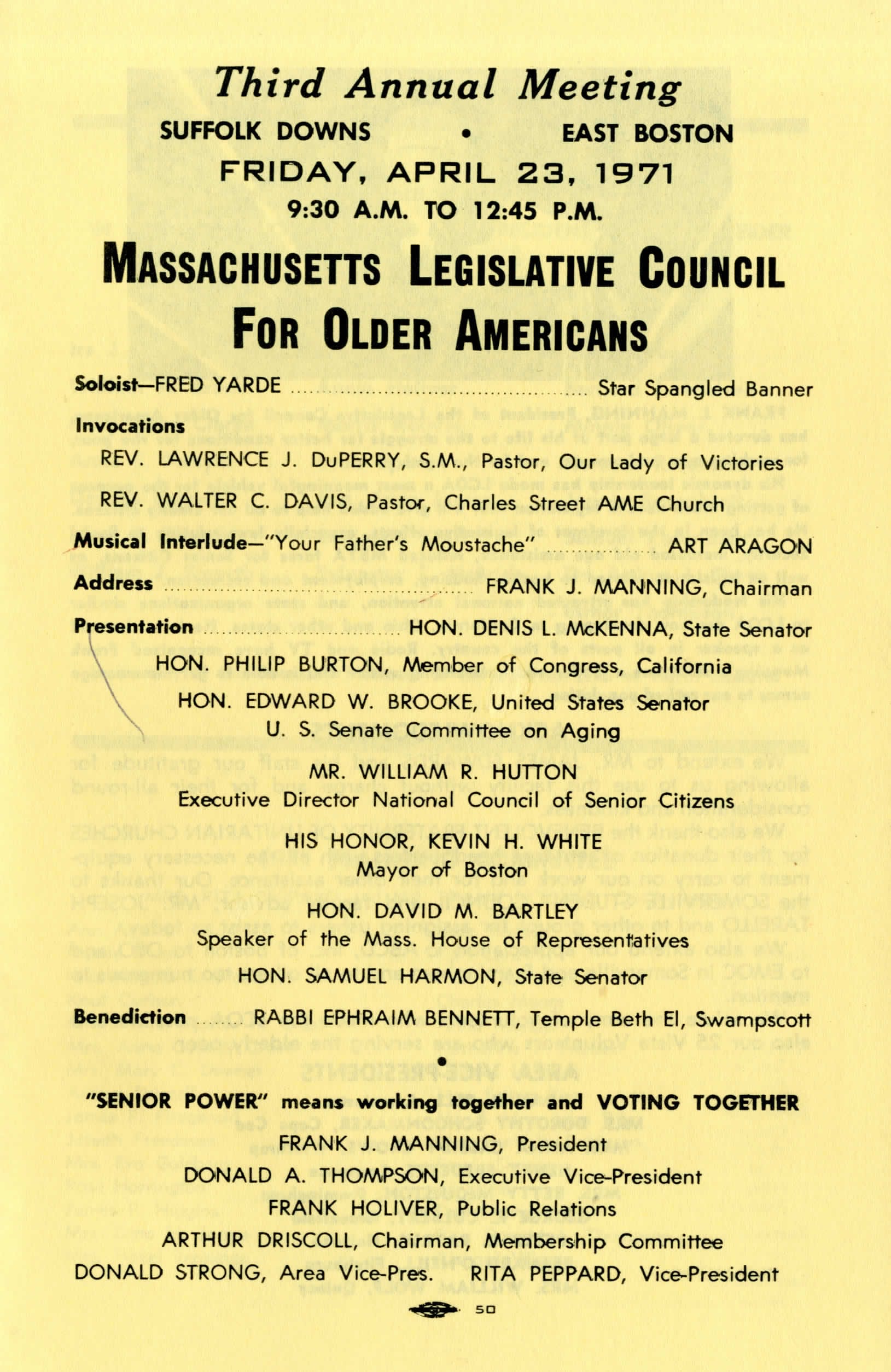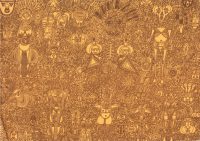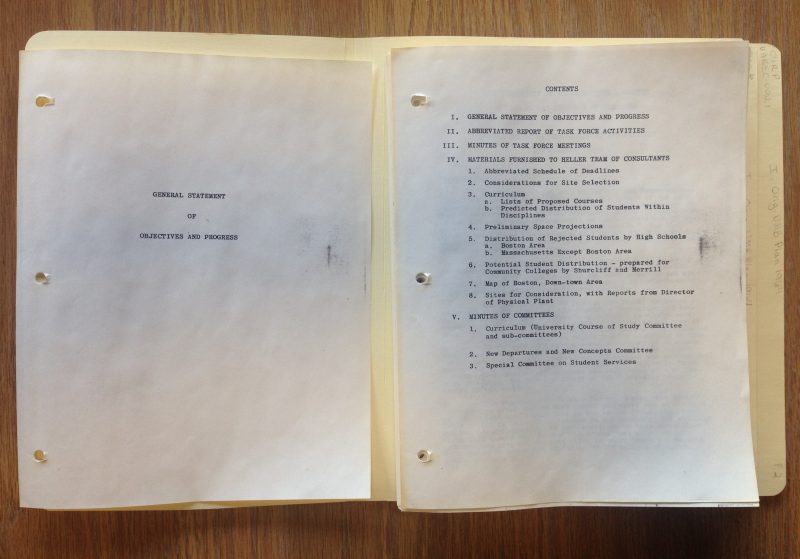A new exhibit in the Joseph P. Healey Library’s Grossmann Gallery highlights items from the Theresa-India Young collection. The exhibit is entitled The Life and Art of Theresa-India Young: Preserving African American Identity.
Join us for an opening reception on Wednesday, October 17, at 4:00 pm. The event is sponsored by the Joseph P. Healey Library at UMass Boston and the William Monroe Trotter Institute and will include remarks by Trotter Institute Director Barbara Lewis, Interim Dean of University Libraries Joanne Riley and by Meghan Bailey, Processing Archivist in the Healey Library and Project Director of the Research Inventory Grant Project funded by Mass Humanities.
Theresa-India Young was a fiber artist, interdisciplinary arts teacher, and education consultant working in the Boston area from 1975-2008. Young taught studio art and museum education at Massachusetts College of Art and Design, where a scholarship is endowed in her name. She also taught at the Museum of Fine Arts, Roxbury Community College, Boston Public Schools, Elma Lewis School of Fine Arts, Harvard University Museum, Cambridge Friends School, Lesley University, and Wheelock College.
Young was a mentor in her community, helping her colleagues and local youth claim their identities as artists and pursue opportunities related to those roles. She served as an advocate for her fellow artists at the Piano Factory Studios when rising rent threatened to displace resident artists.
Young mentored Boston youth by developing the Kush Club, a teen docent program, and managed Primal Arts, an educational consulting business that specializes in cultural presentations, art workshops, and museum tours. As a teacher and purveyor of cultural heritage, Young worked to preserve and maintain folk art traditions in her artwork, such as the Gullah heritage of basket weaving. Her work was informed by her research into African aesthetics and traditions, particularly weaving and hair braiding. She was also prolific in ceramics, European Tapestry, and ethnic weaving.
Visit the display in the Grossmann Gallery on the 5th floor of the Healey Library at UMass Boston. The Grossmann Gallery is open during the library’s regular hours: 7:30 am–10:00 pm on Monday through Thursday, 7:30 am–6:00 pm on Friday, 9:00 am–3:00 pm on Saturday, and 11:00 am–5:00 pm on Sunday. The exhibition will run through the spring of 2019.
Additionally, there’s an exhibition of Theresa-India Young’s work and work by recipients of the Theresa-India Young Scholarship Fund in the Thompson Gallery at MassArt, which was recently featured on WBUR.
Learn more about the Theresa-India Young papers here and view a finding aid for the collection here.
For questions about the exhibition, this collection, or to schedule a research appointment, please email library.archives@umb.edu or call 617-287-5469.
University Archives & Special Collections in the Joseph P. Healey Library at UMass Boston collects materials related to the university’s history, as well as materials that reflect the institution’s urban mission and strong support of community service, notably in collections of records of urban planning, social welfare, social action, alternative movements, community organizations, and local history related to neighboring communities.
University Archives & Special Collections welcomes inquiries from individuals, organizations, and businesses interested in donating materials of an archival nature that that fit within our collecting policy. These include manuscripts, documents, organizational archives, collections of photographs, unique publications, and audio and video media. For more information about donating to University Archives & Special Collections, click here or email library.archives@umb.edu.
